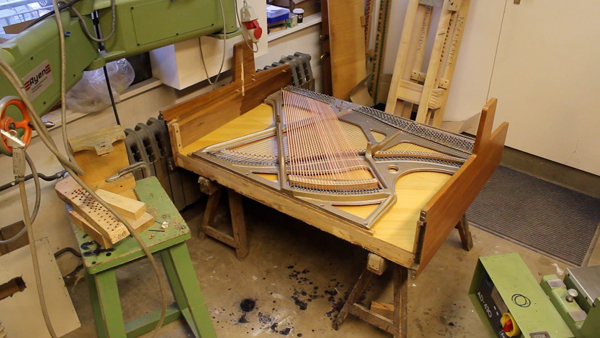For the last five years I have dealt primarily with piano tuning, repairs and regulation – these are the areas I feel most comfortable with and are the jobs I carry out on a day to day basis. While training at Lincoln College in the early part of this decade, I also studied piano restoration extensively – these lessons took up a third of my study time, and while piano restoration requires a full workshop, I have these skills ingrained in my memory. During my career as a Leeds piano tuner, there have been one or two jobs in area of restoration that I have declined to carry out, chiefly because I lacked the tools and/or work space to carry out the jobs to a sufficiently high standard. However, once I have access to my new workshop (late July 2019), I can start to rejig my memory on how to perform several frequently requested restoration services (mainly linked to aesthetics). Two of the most popular that spring to mind are:
- Re-finishing are re-polishing. I can do this once I have access to a workshop with an array of high gloss, french and spray polishes. If your piano’s case is scratched or damaged I can bring it back to life.
- Fitting piano castors – a frequent request I have to turn down until I’m in possession of piano lifting equipment (all of which are extremely expensive to buy). One of the first things I will buy for my workshop will be a portable bench truck – this will allow me to tilt a piano on its back in order to change the castors. I can then offer this service to my Leeds and Bradford clients – many older overdamped pianos are often in need of new castors. I can re-fit them at the end of the piano tuning once we’ve discussed the extra cost.
Keep reading my Leeds piano tuning blog for more information.
– Richard.
